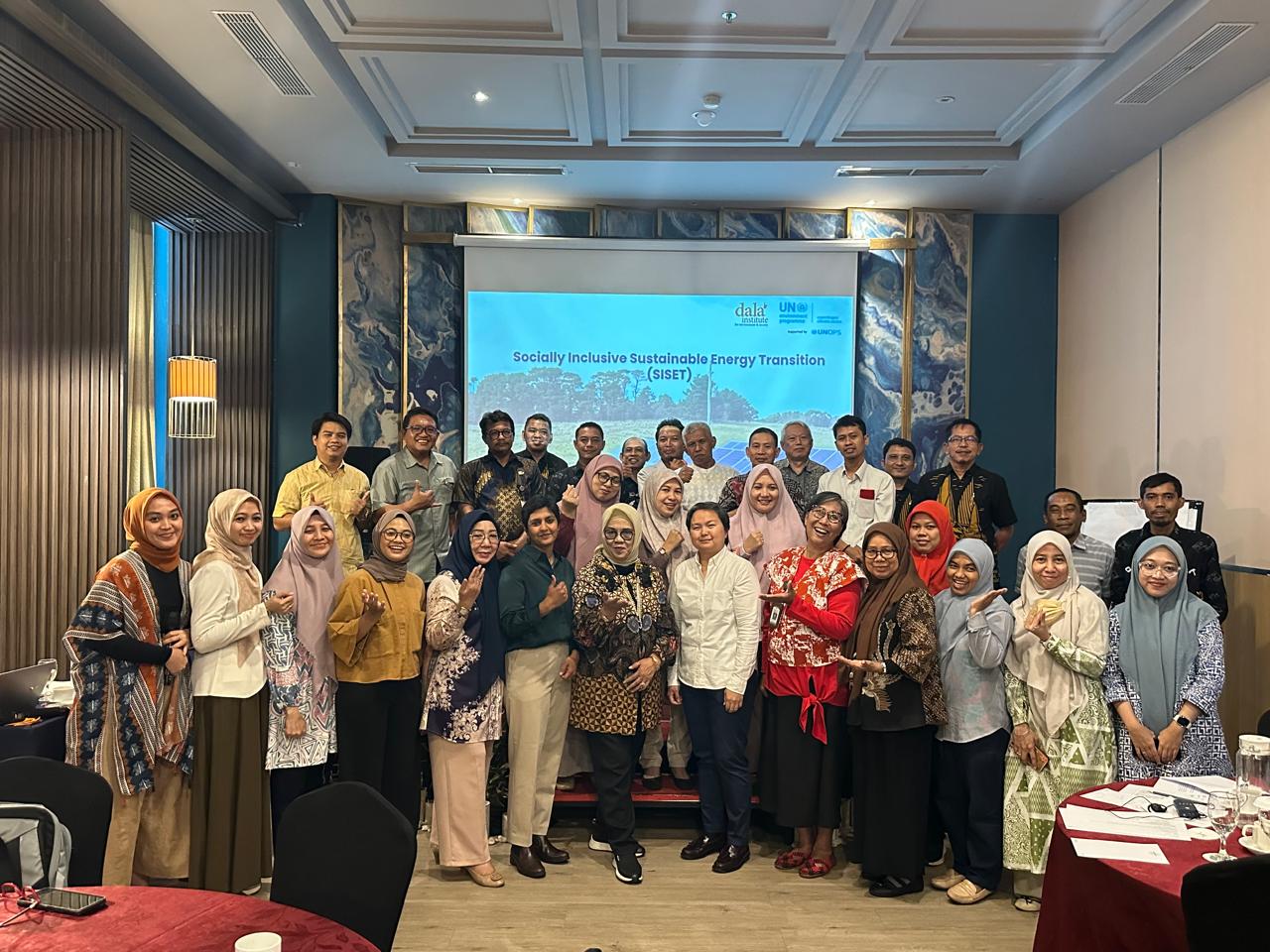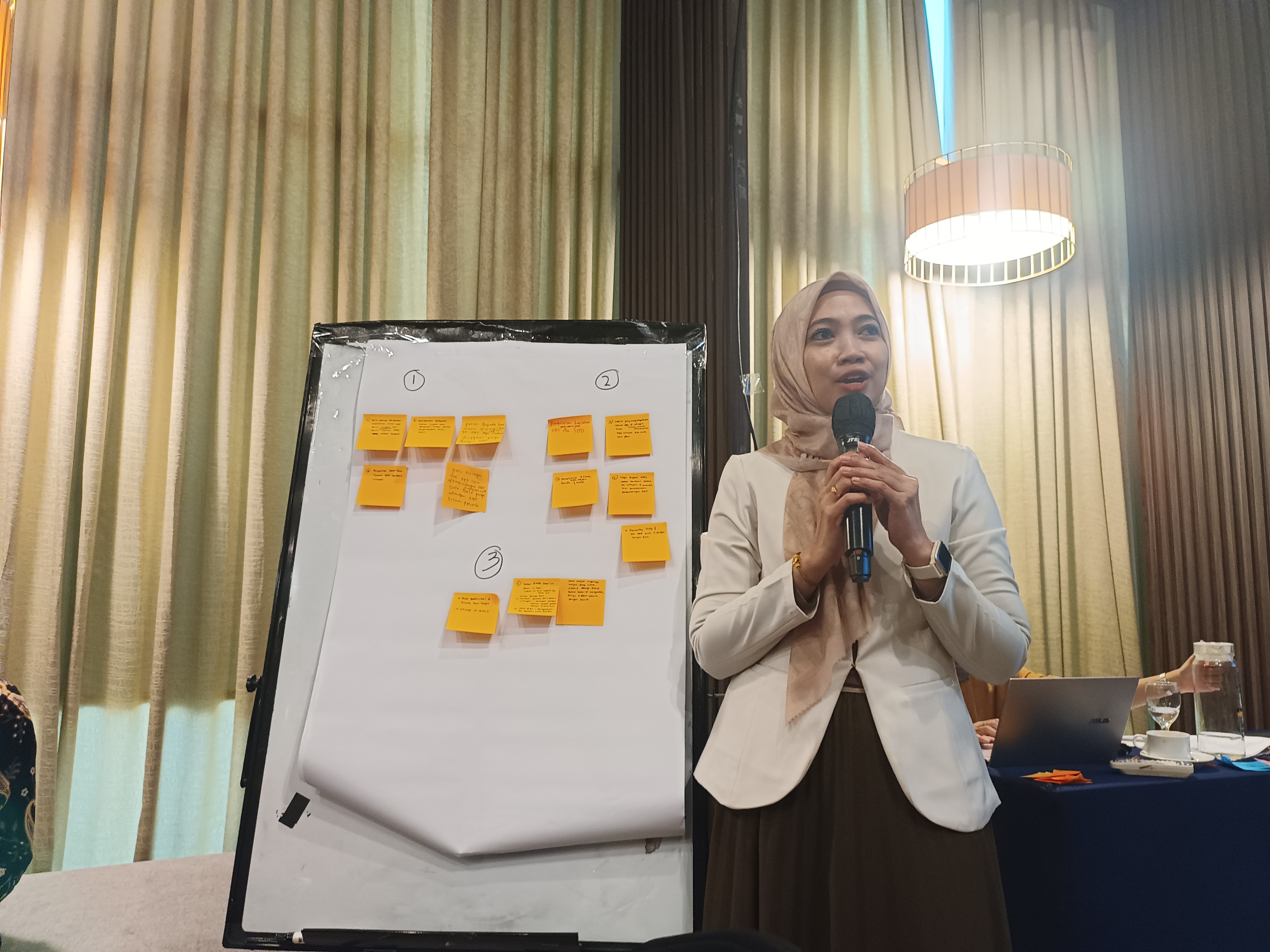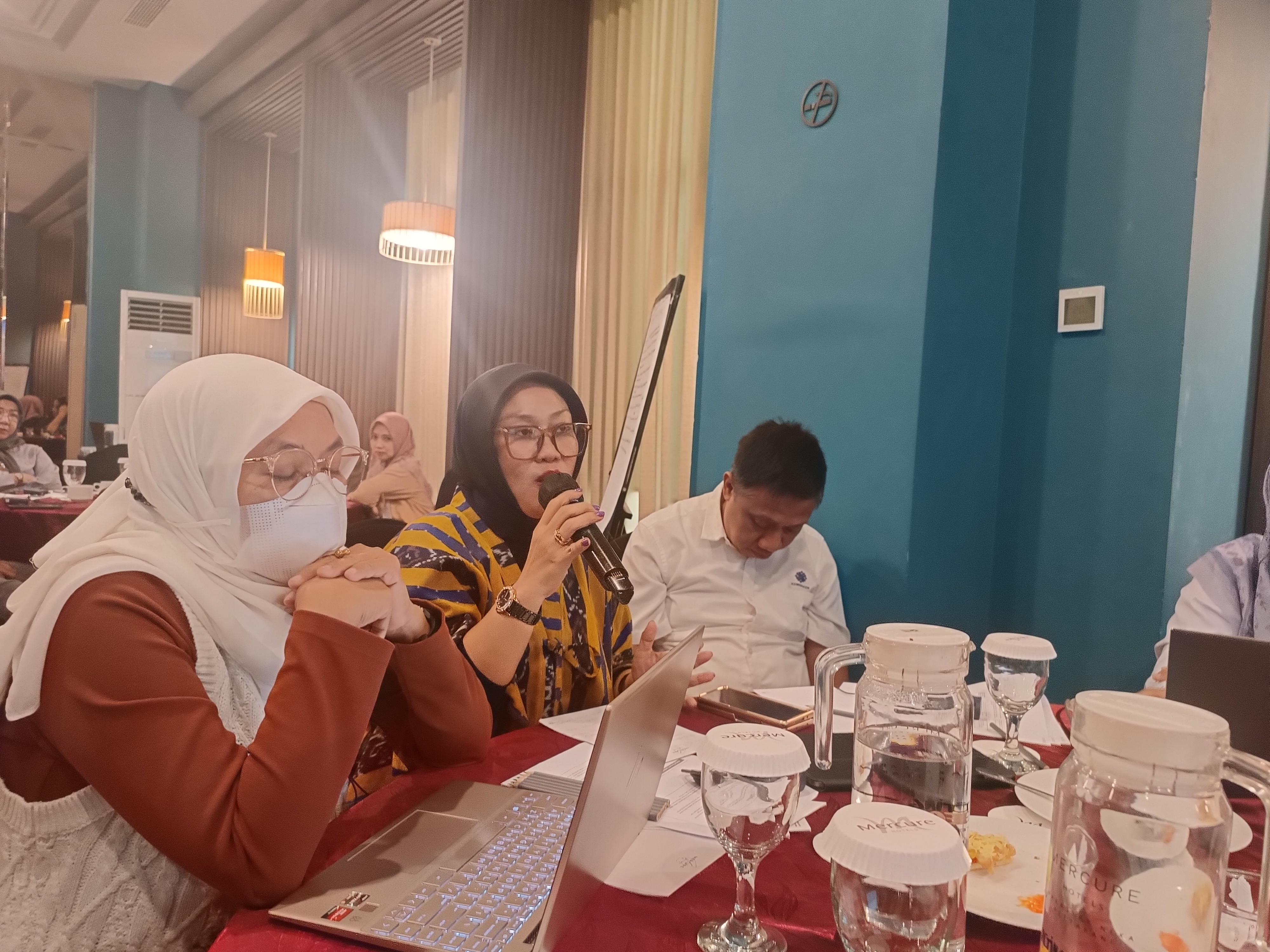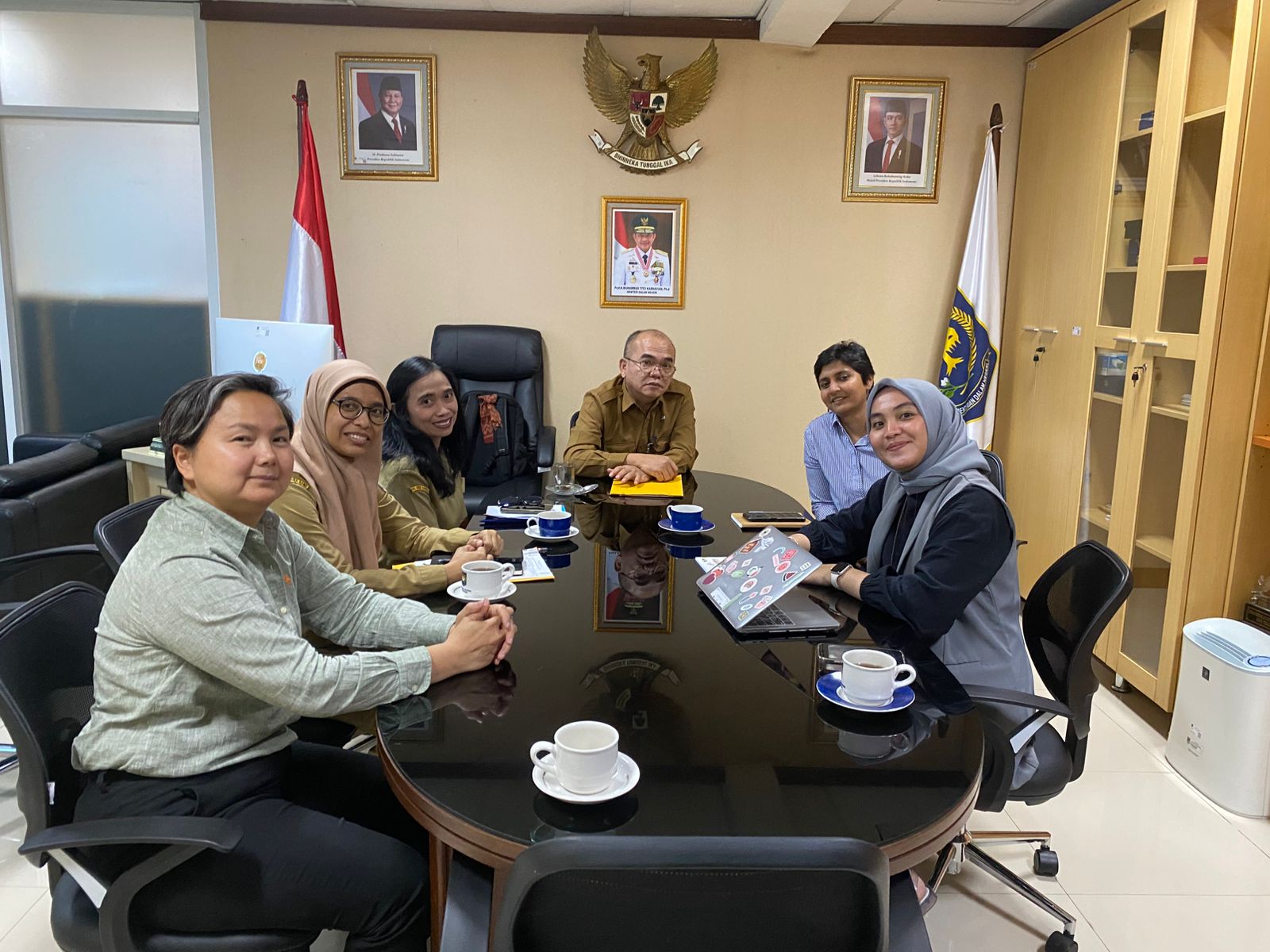The Socially Inclusive Sustainable Energy Transition (SISET) initiative in Indonesia aims to mainstream renewable energy development and support energy transition planning and implementation at the sub-national level, with a focus on South Sulawesi and West Java. The project is led by the UNEP Copenhagen Climate Centre (UNEP-CCC), supported by the local partner Dala Institute, and funded by the Ministry of Foreign Affairs Denmark.
From June 17-19, 2025, the SISET initiative held a three-day workshop to examine how renewable energy can be better mainstreamed into regional development strategies for maximizing economic opportunities and development. The workshop activities were also supported by the Yayasan KOPEL, a local NGO that has been working on the advocacy for synchronizing energy plans and development plans. The workshop took place in the context of the ongoing finalization of South Sulawesi’s regional medium term development plan (RPJMD) 2025 – 2029.
While Indonesia has national renewable energy targets, abundant resource potential, and established regional energy plans (RUED) across all provinces, renewable energy remains poorly integrated into sub-national development planning and cross-sectoral coordination for economic development, particularly outside Java.
Low Priority of Renewable Energy in Regional Development Agenda
The workshop identified that while South Sulawesi has significant renewable energy potential – including wind, solar, hydro, and biomass resources, this potential has not translated into concrete policy commitments and alignment across sectoral development agencies. “[Renewable energy] Energi Baru Terbarukan (EBT) is not currently a priority in South Sulawesi’s regional medium term development plan. But we realise that it can become a main driver in sustainable economic growth,” said a representative from South Sulawesi Regional Development Planning Agency (Bappelitbangda).
Several participants highlighted that even where renewable energy projects exist, they often operate in isolation from broader development planning. Only four provinces nationally have integrated RUED in their RPJMD, yet this integration falls short of fully addressing the renewable energy needs across sectors, as confirmed by the Ministry of Home Affairs (MoHA). Additionally, many regional governments view renewable energy as the domain of Indonesia’s State Electricity Company (PLN) or the private sector and hence miss out on significant economic opportunities such as stimulating investment, creating jobs, and strengthening local development. The workshop also identified that RUED continues to remain heavily supply-driven, with insufficient attention to demand-side dynamics — which are critical for understanding sectoral energy needs.
“Thirty years later, Indonesia is an energy importer. Gas reserves are low. EBT’s contribution to local economy, to social welfare, and energy independence must become central priorities,” said a representative from Ministry of National Development Planning (Bappenas), emphasising the urgency of addressing the gaps in Indonesia’s renewable energy transition.
Energy Transition Delinked from Economic Development and Sectoral Growth
A critical gap identified was the disconnect between renewable energy initiatives and broader economic development strategies. The workshop found that renewable energy is viewed mostly as an energy supply solution for remote islands and rural areas rather than an integrated approach to economic development, employment creation, and poverty reduction.
A lecturer at the Universitas Negeri Makassar (UNM) shared practical examples from solar irrigation projects of how renewable energy links to broader economic development priorities. “Farmers use diesel generators for irrigating the rice fields and due to rising diesel fuel costs, they started using gas, but this caused different issues as the supply was unreliable,” they said.
The UNM’s solar pump demonstrations showed economic gains, such as reduced operational costs, with communities in Gowa regency demonstrating interest in allocating village budgets to replicate the technology. However, for scaling such solutions, concessional financing will be key as the upfront costs for solar pumps remain high.
Representatives from both the fisheries and agriculture sectors noted solar replacements for petrol, diesel, and gas can reduce operational costs but that limited technical capacity for operation & maintenance were a challenge.
“Farmers’ energy needs and their dependence on diesel fuels represents 50% of their operational activities. What is really needed is the production equipment, tractors and other electric powered machinery that does not rely on expensive diesel fuels,” said a representative from the Yayasan Hadji Kalla Foundation – a local NGO working across 22 villages through a program of Kampung Energi Hijau (Green Energy Village) in South Sulawesi.
Breaking Down Silos: The Imperative for Cross-Agency Coordination
Perhaps the most significant finding was the extent of institutional fragmentation hindering the progress of renewable energy and economic development. Multiple agencies acknowledged working in silos despite sharing common objectives.
“I agree we are working in silos, even though we have the same objectives. More agencies need to be present here, they need to show up. It is not the job of ESDM [to focus on EBT] but also of sectoral agencies and agencies such as gender, and workforce,” said a representative from Energy and Mineral Resources Agency (Dinas ESDM).
The workforce development sector revealed particular challenges. “EBT is a new one and we will discuss it in the next Renstra, if it is instructed by the Governor. We will focus on the unabsorbed workforce. How can we develop skills and how can they get employment and business opportunities?,” said a representative From the Manpower Agency. Currently, there is no integration of renewable energy skills training in either education agency’s workplan/budget or in the regional workforce development plans.
Education sector representatives acknowledged similar gaps. While some vocational schools and polytechnics have renewable energy programs, coordination remains limited and faced challenges in budget allocation, data sharing, technical capacity, and a lack of regular inter-agency dialogue mechanisms.
The workshop highlighted successful examples of coordination, such as the Vocational Training Centre Makassar’s renewable energy programs and the establishment of Renewable Energy Diploma program in National Polytechnic Ujung Pandang supported by Swiss government funding but noted these remain sporadic rather than systematic.
Pathways Forward: Policy Integration and Institutional Reform
The workshop identified several promising pathways for improvement and a potential roadmap for other Indonesian provinces grappling with similar challenges in translating renewable energy potential into inclusive economic development. Sectoral agencies are increasingly recognizing that renewable energy is a vital component of their broader development agendas, which could in turn be reflected in their work plans and budget allocations.
Participants in the workshop proposed on concrete actions to further integrate renewable energy technology into regional development planning, including the establishment cross-sectoral working groups to coordinate between key sectoral; integrating RUED and EBT needs into RPJMD to ensure regional energy plans and needs are reflected in broader development strategies; developing sector-specific renewable energy roadmaps; creating shared databases; and strengthening regency and village-level capacity.
The workshop was supported by the Bappenas, the MoHA, along with the Dinas ESDM and Bappelitbangda South Sulawesi, and brought together 24 organizations and more than 45 stakeholders including sub-national government agencies, universities, polytechnic institutions, and civil society organizations.



